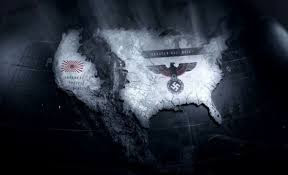You understand that I’m not talking about a mere murder a week. No, I mean a series of murders a week.
Fortunately, they were blessed with a local police detective of almost superhuman ability, Kurt Wallander, who week after week identified the perpetrator and arrested him, often in spectacular fashion. Oddly, for a small seaside town, there always seemed to be a camera crew standing by to record the event. Not that I’m complaining: how would we have been able to enjoy it if they hadn’t been there?
One of the obstacles to Wallander’s success was, as so often in TV views of police work, his own hierarchy which never seemed to believe in him. Of course, I sympathised with him, but I have to admit that I can’t help wondering whether his superiors didn’t have a bit of a case: after all, just how useful is it to solve this week’s serial killings if it doesn’t deter next week’s?
 |
| Wallander: gets it solved but can’t stop it happening again |
If things were so awful in Ystad, you can imagine how much worse they must be in the capital, Stockholm. It seems that this city is the hunting ground of an absolutely weird woman you really don’t want to cross. She’ll hack your computer and your phone, find out where you are, track you down and exact harsh, not to say bloodthirsty, revenge for any offence you may have caused her.
You can imagine how careful I was in Stockholm when I was there myself last week. I tried to work out whether any woman I saw might have a dragon tattoo on her shoulder but, hey, it was winter time and everyone was wearing coats, so how could I have known? For safety’s sake, I just kept out of the way of any of them.
I didn’t really feel safe until I got to the meeting for which I’d flown to this bleak and forbidding capital (which, to be fair, turned out to be neither). It was with a group of librarians, and it’s hard to imagine a less threatening profession (even if Professor Plum did get scragged in a library with a candlestick).
There’s that moment at the start of a meeting which pretty much decides whether it’s going to be a success or not. It’s when people are taking off their coats and getting out their notepads, deciding whether they want tea or coffee and whether they want a biscuit with it or not, and above all making small talk.
It struck me that I might start by mentioning how keen an admirer I am of the Nordic Noir genre. So I told them that I had enjoyed Broen/Bron, the series whose double name reflects its mixed Swedish/Danish origins. They all looked at me blankly, until the penny dropped with one of them.
“Oh, you mean The Bridge?” she said. It may not have helped that I had called the series ‘Broen’, or possibly ‘Bron’ (my pronunciation is far from reliable), which may have been the wrong language, or possibly neither. Anyway, The Bridge was indeed what I meant. They told me they’d liked it, but without the slightest trace of enthusiasm, like someone drinking your home-made wine who has decided not to offend you.
Warmth improved when one of them said, “I liked The Killing”, which they all seemed to have done. So had I, but I hadn’t mentioned it since it’s Danish rather than Swedish.
Then she added a comment which really surprised me. “I watched the American version too. And it was much better.”
What? The remake was better than the original? What world was I living in?
Finally, the truly astonishing revelation came out.
“I’m watching Line of Duty now,” another one of the librarians told me.
Now they were all enthusiastic.
“Oh, yes,” said another, “that’s a really great programme. We’re on season 3 now. It’s great.”
Line of Duty? That’s an English police series. I enjoyed it too. But it had none of the exotic content, the originality, the innovative viewpoint of Nordic Noir.
But then I suppose Nordic isn’t exotic to Nordics.
Or could it be that my first impression was right? That those Nordic series are only Noir to us? That to people on the ground they’re just a rather pedestrian description of everyday life?


